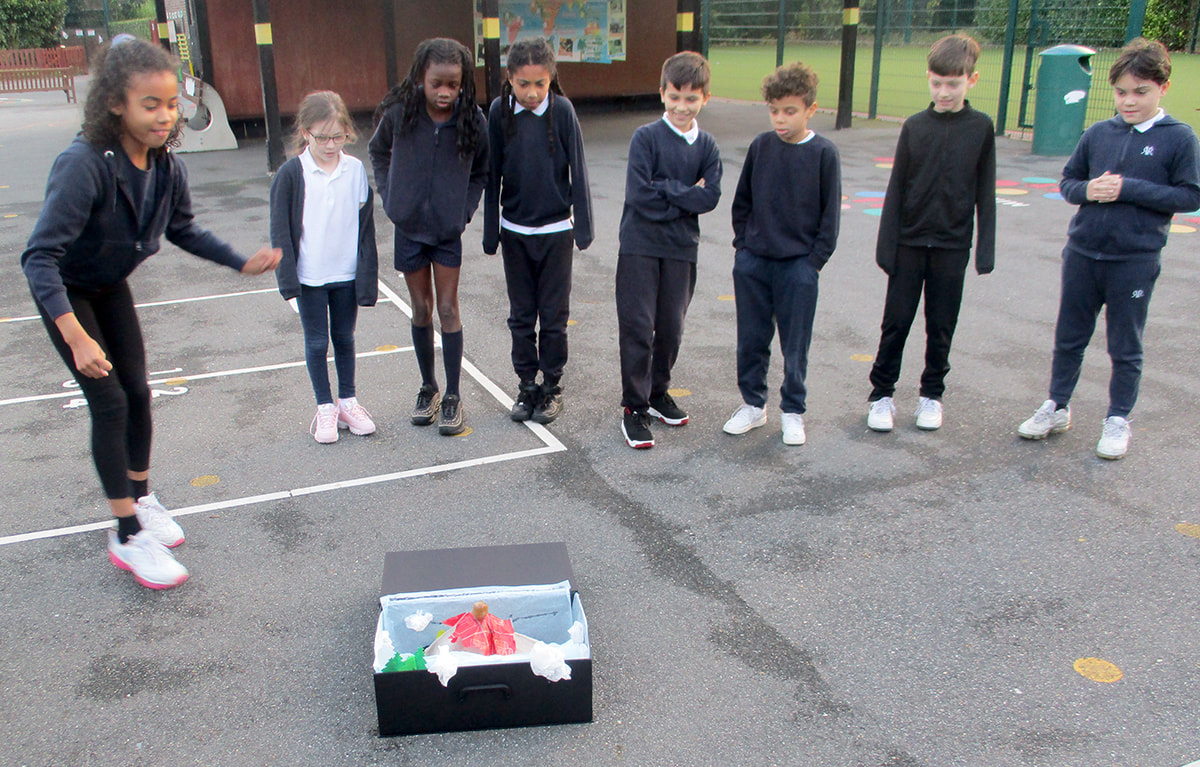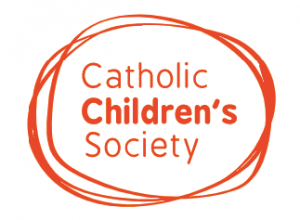Science at St. Agnes Primary School
Co-ordinator: Ms Ciara Manning
Intent
At St Agnes we believe science is instrumental in ensuring our children understand the world around them, as well as developing excitement, curiosity, awe and wonder about their surroundings. Through their learning, they are ready for today, and prepared for tomorrow.
In science, we are clear that Intent is the knowledge and skills the children acquire in our curriculum, which builds towards clearly defined end points.
We understand the importance of the Early Years in embedding strong foundations for future scientists.
Our Early Years provision ensures that:
In Key Stage 1 and Key Stage 2, our science curriculum is broad, balanced and engaging. It guides the children through a journey of discovery in the specific disciplines of biology, chemistry and physics. In their lessons, children will gain knowledge and understanding about the following:
Throughout each phase of learning, our curriculum is designed to ensure our children can work scientifically with clear progression. WE have developed a clear progression document that allows the children the opportunity to develop their shills.
By the end of their time at St Agnes, we aspire for all our children to be able to:
Implementation
Our science curriculum at St. Agnes carefully aligns key scientific knowledge with skills for working scientifically to ensure children have a deep understanding. The science curriculum is mapped to ensure that children’s learning is embedded into their long-term memory and meaningful learning experiences are made in a holistic way.
Science lessons throughout children’s time at St. Agnes are carefully designed and coherently planned to build upon children’s prior learning. Links are made across the year groups whereby similar topic areas are taught and there is clear progression across key stages to show the development of knowledge and skills expected at each stage. At every stage the use of a language-rich environment is crucial. Books focused upon STEM are available in each class and the use of technical terminology is modelled by teaching staff and supported in resources to ensure the children have built up an extended specialist vocabulary by the time they leave primary school so they are prepared for their future learning.
In EYFS the children are working towards their Early Learning Goals. One particular area focuses upon Understanding the World through the exploration of the Natural World. The children are engaged through the continuous provision to explore the world around them and are encouraged to notice similarities and differences between contrasting areas and the natural world. Through this they are also able to make observations and drawings of key aspects of nature, including plants and animals. Children are supported for future learning in higher key stages by understanding initial aspects of important processes such as changing seasons and states of matter. The children’s Learning Journals evidence the children’s experiences and learning journey across the year.
In Key Stage 1 and 2, key parts of the science curriculum are studied weekly and teachers plan lessons to build upon both previous year groups and the sequence of learning within that unit. It is vitally important the children develop a strong understanding of key knowledge and concepts before progressing to the next year group. For example, key areas such as plants; animals including humans; and living things and their habitats are all areas of the biology discipline of the science curriculum that are revisited throughout different year groups and are planned for progression. It is important that our curriculum also offers children the opportunity to explore working scientifically and develop an understanding of nature, processes and methods of scientific enquiry to support them now and in the future. Staff are supported in this with professional development meetings and regular monitoring feedback. Teaching resources include subject knowledge and CPD for teachers.
We assess regularly in order to build a rounded picture of each child as a scientist, using practical opportunities, quizzes, discussions and presentations. This enables teachers to challenge children in their thinking and learning.
Impact
If you were to walk into science lessons at St Agnes, you would see:
At St Agnes we believe science is instrumental in ensuring our children understand the world around them, as well as developing excitement, curiosity, awe and wonder about their surroundings. Through their learning, they are ready for today, and prepared for tomorrow.
In science, we are clear that Intent is the knowledge and skills the children acquire in our curriculum, which builds towards clearly defined end points.
We understand the importance of the Early Years in embedding strong foundations for future scientists.
Our Early Years provision ensures that:
- Children have a knowledge of the natural world
- Children know how to look after their bodies and how to pursue active, healthy and happy lives
- Children are exposed to technological and ecologically diverse worlds
- Children can safely explore and use a range of materials
- Children understand important processes and changes in the natural word, including seasons and changing states and matter
- Children can notice similarities and differences in the natural world
In Key Stage 1 and Key Stage 2, our science curriculum is broad, balanced and engaging. It guides the children through a journey of discovery in the specific disciplines of biology, chemistry and physics. In their lessons, children will gain knowledge and understanding about the following:
- Plants
- Animals, including humans
- Everyday materials
- Seasonal changes
- Living Things and Habitats
- Rocks
- Light
- Forces and Magnets
- States of Matter
- Sound
- Electricity
- Properties and changes of materials
- Earth and Space
- Evolution and inheritance
Throughout each phase of learning, our curriculum is designed to ensure our children can work scientifically with clear progression. WE have developed a clear progression document that allows the children the opportunity to develop their shills.
By the end of their time at St Agnes, we aspire for all our children to be able to:
- Apply knowledge learnt from our planned curriculum
- Plan different types of scientific enquiries to answer questions, including recognising and controlling variables where necessary
- Take measurements, using a range of scientific equipment, with increasing accuracy and precision, taking repeat readings when appropriate
- Record data and results of increasing complexity using scientific diagrams and labels, classification keys, tables, scatter graphs, bar and line graphs
- Use test results to make predictions to set up further comparative and fair tests
- Report and present findings from enquiries thoroughly and in a range of different methods
- Identify scientific evidence that has been used to support or refute ideas or arguments
- To evaluate investigations and suggest improvements
Implementation
Our science curriculum at St. Agnes carefully aligns key scientific knowledge with skills for working scientifically to ensure children have a deep understanding. The science curriculum is mapped to ensure that children’s learning is embedded into their long-term memory and meaningful learning experiences are made in a holistic way.
Science lessons throughout children’s time at St. Agnes are carefully designed and coherently planned to build upon children’s prior learning. Links are made across the year groups whereby similar topic areas are taught and there is clear progression across key stages to show the development of knowledge and skills expected at each stage. At every stage the use of a language-rich environment is crucial. Books focused upon STEM are available in each class and the use of technical terminology is modelled by teaching staff and supported in resources to ensure the children have built up an extended specialist vocabulary by the time they leave primary school so they are prepared for their future learning.
In EYFS the children are working towards their Early Learning Goals. One particular area focuses upon Understanding the World through the exploration of the Natural World. The children are engaged through the continuous provision to explore the world around them and are encouraged to notice similarities and differences between contrasting areas and the natural world. Through this they are also able to make observations and drawings of key aspects of nature, including plants and animals. Children are supported for future learning in higher key stages by understanding initial aspects of important processes such as changing seasons and states of matter. The children’s Learning Journals evidence the children’s experiences and learning journey across the year.
In Key Stage 1 and 2, key parts of the science curriculum are studied weekly and teachers plan lessons to build upon both previous year groups and the sequence of learning within that unit. It is vitally important the children develop a strong understanding of key knowledge and concepts before progressing to the next year group. For example, key areas such as plants; animals including humans; and living things and their habitats are all areas of the biology discipline of the science curriculum that are revisited throughout different year groups and are planned for progression. It is important that our curriculum also offers children the opportunity to explore working scientifically and develop an understanding of nature, processes and methods of scientific enquiry to support them now and in the future. Staff are supported in this with professional development meetings and regular monitoring feedback. Teaching resources include subject knowledge and CPD for teachers.
We assess regularly in order to build a rounded picture of each child as a scientist, using practical opportunities, quizzes, discussions and presentations. This enables teachers to challenge children in their thinking and learning.
Impact
- Children will become confident in posing scientific questions, planning investigations and drawing conclusions by interpreting data, making them prepared for future scientific learning.
- Progression in knowledge and skills will be evident in lesson and books
- They will have participated in a wide range of Science events and worked to contribute to a whole school awareness of science through science trips and workshops, members of the local community visiting and science celebration events.
- Studying science will enable them to ask questions about the world around them and encourage them to develop a greater curiosity in the natural world.
- Our children will be inquisitive young learners and citizens who explore ideas and raise different kinds of questions; able to discuss, communicate and justify their scientific ideas and talk about how scientific ideas have developed over time. We aspire for our children to leave St Agnes equipped with the scientific knowledge required to understand the uses and implications of science, today and for the future. In this way, we prepare our learners fully for transition to secondary school and transition into becoming global citizens.
If you were to walk into science lessons at St Agnes, you would see:
- A wide range of scientific enquiry being used to engage children and provide greater understanding – Each year group has access to a wide range of scientific resources to help engage and deepen children’s understanding. The science lessons draw upon a combination of knowledge and skills so pupils can use their prior understanding to support and develop them.
- Relevant trips to extend and engage children within their learning
- The use of key vocabulary throughout the school – Children have vocabulary made available to them through displays, word mats and slideshows. We encourage the children to refer back to the key terminology and become increasingly independent in using the correct vocabulary to demonstrate their understanding.









